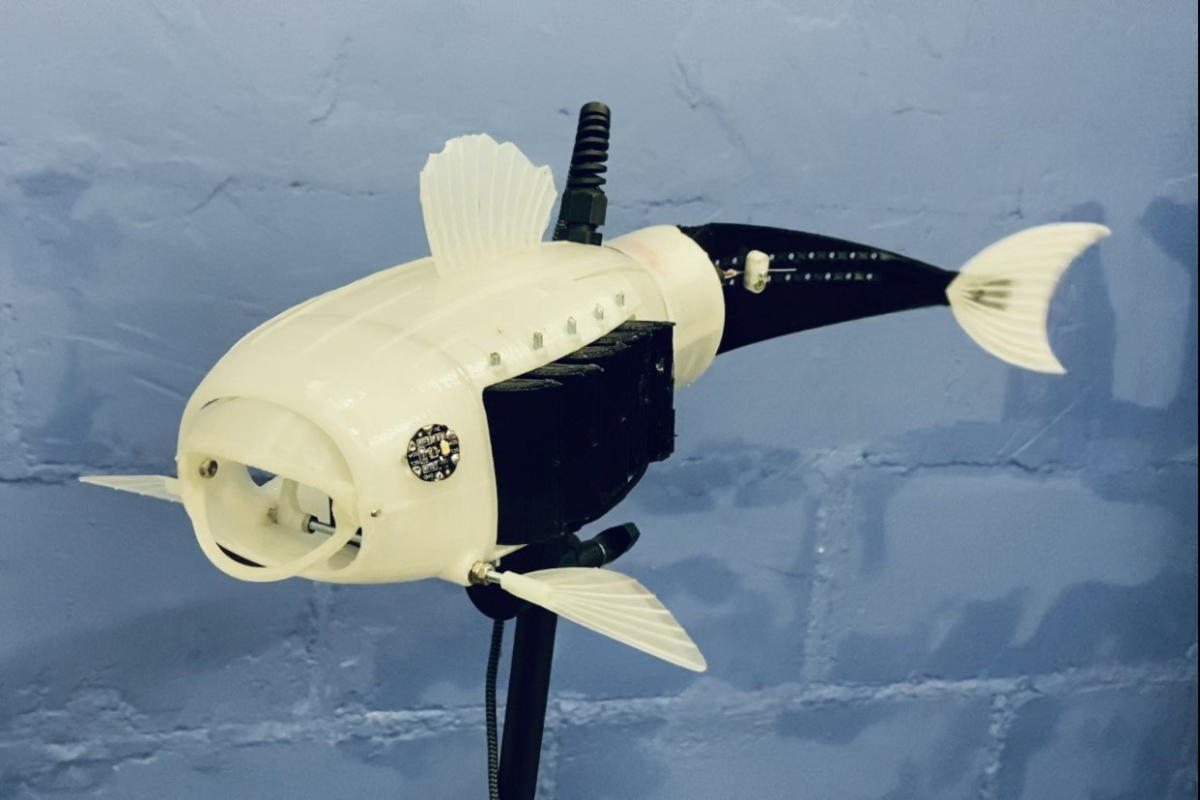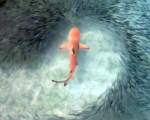Meet ‘Eve’: The Robotic Fish Revolutionizing Ocean Studies

In a groundbreaking development from ETH Zurich, engineering students have introduced “Eve,” a sophisticated robotic fish designed to enhance ocean research. Although stationed 400 kilometers from the nearest sea, Eve is being tested in Lake Zurich by the student-led SURF-eDNA group, which aims to advance how we study aquatic ecosystems.
Eve, with its biomimetic design, mimics the movements of a real fish with a silicone tail and internal pumps that propel it smoothly through the water. This design minimizes disturbance to the local ecosystem, allowing Eve to blend seamlessly with its surroundings, as noted by master’s student Dennis Baumann. The robot’s ability to remain unobtrusive is key to gathering accurate environmental data without disrupting the habitat.
Beyond its lifelike appearance, Eve boasts several high-tech features. It is equipped with a camera for underwater filming, sonar for obstacle navigation, and a specialized filter for collecting environmental DNA (eDNA). This eDNA, shed by organisms in the water, is collected and analyzed to identify the species present in the area, providing a deeper understanding of aquatic biodiversity.
Martina Lüthi, a postdoctoral researcher at ETH Zurich, explains that eDNA can reveal the variety of life forms in a given water body by capturing the genetic material shed by animals. This approach, combined with Eve’s autonomous capabilities, represents a significant leap from traditional methods of collecting eDNA, which often involve manually scooping water samples.
The advancement of tools like Eve is crucial for exploring and protecting the world’s oceans, which cover over 70% of the Earth’s surface yet remain largely unexplored. Innovations such as Aquaai’s clownfish-like drones and deep-sea rovers demonstrate the growing trend towards using advanced technology to monitor and study marine environments.
As climate change, overfishing, and other human activities threaten ocean habitats, sophisticated tools like Eve could become essential for more effective conservation efforts. Baumann and his team hope that by refining their technology, they can offer a reliable, scalable tool for biologists worldwide. Their goal is to help prevent species endangerment and extinction, thereby contributing to the preservation of marine biodiversity.
Eve represents a promising step towards more precise and less invasive environmental monitoring, underscoring the potential of robotics to transform our understanding and protection of the natural world.




















